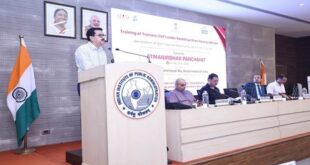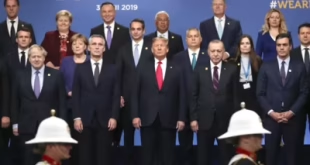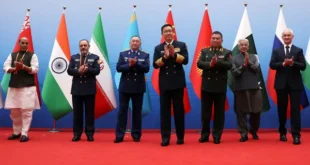GS-2
1.SEVENTH TRADE POLICY REVIEW OF INDIA AT THE WTO
Recently, the final session of India’s seventh Trade Policy Review (TPR) concluded at the
World Trade Organization (WTO) in Geneva, Switzerland.
APPRECIATION FOR INDIA:
- Introduction of Goods & Services Tax in 2016. India’s efforts in the implementation of WTO’s Trade Facilitation Agreement.
- Role played by India in furthering “Ease of Doing Business” in the country.
- India’s improved ranking in “Trading across Borders” indicator under the Ease of Doing Business Report.
- Trade Facilitation Agreement (TFA), aims to speed up customs procedures and make trade easier, faster, and cheaper.
- The steps taken by India for liberalizing its Foreign Direct Investment (FDI) regime and India’s National Intellectual Property Rights Policy, 2016.
Concerns for India:
- India’s trade policy remained largely unchanged since the previous review.
- India continues to rely on trade policy instruments such as the tariff, export taxes, minimum import prices, import and export restrictions, and licensing, WTO said.
- These are used to manage domestic demand and supply requirements, protect the economy from wide domestic price fluctuations, and ensure conservation and proper utilization of naturalresources.
- As a result, frequent changes are made to tariff rates and other trade policy instruments, which create uncertainty for traders.
INDIA’S REQUEST:
- The ongoing pandemic has again brought to the fore, the importance of food and livelihood security and urged for a permanent solution to Public Stock Holding (PSH) for food security.
Public Stockholding (PSH):
- It is a policy tool used by governments to procure, stockpile and distribute food when needed.
- Currently, public distribution programmesof developing countries are included under trade-distorting Amber Box measures that attract reduction commitments of WTO.
- India with the group of developing countries is demanding that the programmes for food security purposes be exempted from subsidy reduction commitments of WTO.
- India has repeatedly demanded a permanent solution for public stockholding issues.
SOURCE: PIB
 Chinmaya IAS Academy – Current Affairs Chinmaya IAS Academy – Current Affairs
Chinmaya IAS Academy – Current Affairs Chinmaya IAS Academy – Current Affairs



